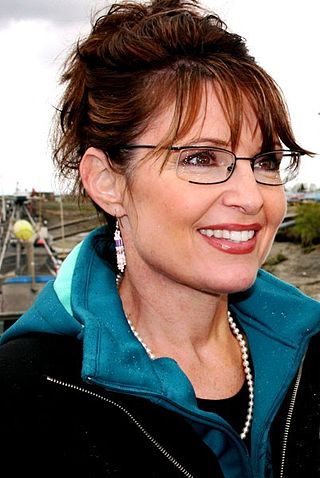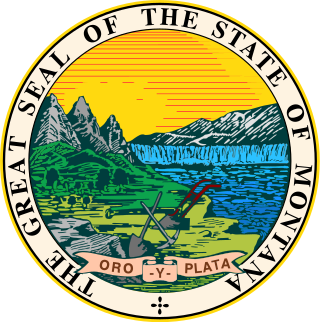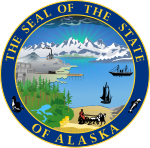Ballot access are rules and procedures regulating the right to candidacy, the conditions under which a candidate, political party, or ballot measure is entitled to appear on voters' ballots in elections in the United States.

In California, a ballot proposition is a referendum or an initiative measure that is submitted to the electorate for a direct decision or direct vote. If passed, it can alter one or more of the articles of the Constitution of California, one or more of the 29 California Codes, or another law in the California Statutes by clarifying current or adding statute(s) or removing current statute(s).
In the politics of the United States, the process of initiatives and referendums allow citizens of many U.S. states to place legislation on the ballot for a referendum or popular vote, either enacting new legislation, or voting down existing legislation. Citizens, or an organization, might start a popular initiative to gather a predetermined number of signatures to qualify the measure for the ballot. The measure is placed on the ballot for the referendum, or actual vote.
Anglo American plc is a British multinational mining company with headquarters in London, England. It is the world's largest producer of platinum, with around 40% of world output, as well as being a major producer of diamonds, copper, nickel, iron ore, polyhalite and steelmaking coal. The company has operations in Africa, Asia, Australia, Europe, North America and South America.

Proposition 218 is an adopted initiative constitutional amendment which revolutionized local and regional government finance and taxation in California. Named the "Right to Vote on Taxes Act," it was sponsored by the Howard Jarvis Taxpayers Association as a constitutional follow-up to the landmark property tax reduction initiative constitutional amendment, Proposition 13, approved in June 1978. Proposition 218 was approved and adopted by California voters during the November 5, 1996, statewide general election.

Pebble Mine is the common name of a proposed copper-gold-molybdenum mining project in the Bristol Bay region of Southwest Alaska, near Lake Iliamna and Lake Clark. It was discovered in 1987, optioned by Northern Dynasty Minerals in 2001, explored in 2002, and drilled from 2002-2013 with discovery in 2005. Preparing for the permitting process began and administrative review lasted over 13 years.

Elections in Oregon are all held using a Vote by Mail (VBM) system. This means that all registered voters receive their ballots via postal delivery and can vote from their homes. A state Voters’ Pamphlet is mailed to every household in Oregon about three weeks before each statewide election. It includes information about each measure and candidate in the upcoming election.
The Juneau mining district is a gold mining area in the U.S. state of Alaska.

Proposition 4, or the Abortion Waiting Period and Parental Notification Initiative, also known to its supporters as Sarah's Law, was an initiative state constitutional amendment in the 2008 California general election.

The Greyhound Protection Act is a Massachusetts statute that gradually eliminated commercial dog racing by 2010. It was enacted as Question 3 on the November 4, 2008 ballot in Massachusetts.

In 2006, Sarah Palin was elected governor of Alaska. Running on a clean-government platform, Palin defeated incumbent Governor Frank Murkowski in the Republican gubernatorial primary election in August. She then went on to win the general election in November, defeating former Governor Tony Knowles 48.3% to 40.9%. Her running mate was State Senator Sean Parnell.
The South Dakota Open and Clean Government Act, or Initiated Measure 10, was a South Dakota initiative that would ban taxpayer-funded lobbying, stop the exchange of campaign donations for state contracts, and open a website with information on state contracts. The Open and Clean Government Act was proposed as a citizen-initiated state statute and appeared on the November 4, 2008 ballot.
Coeur Alaska, Inc. v. Southeast Alaska Conservation Council, 557 U.S. 261 (2009), is a United States Supreme Court case that was decided in favor of Coeur Alaska's permit to dump mine waste in a lake. The case addressed tailings from the Kensington mine, an underground mine located in Alaska. The gold mine had not operated since 1928, and Coeur Alaska obtained a permit in 2005 from the United States Army Corps of Engineers (USACE) to dispose of up to 4.5 million tons of tailings in Lower Slate Lake, which is located in a National Forest.

The Massachusetts Comprehensive Permits and Regional Planning Initiative, also known as Question 2, appeared on the November 2, 2010 ballot in the state of Massachusetts as an initiative. Question 2 was rejected by the Massachusetts voters by 1,254,759 "No" votes to 900,405 "Yes" votes. The measure had been sponsored by Better Not Bigger, a local advocacy group in the state.
The Donlin Gold Project is a large, undeveloped, refractory gold deposit located 12 miles (19 km) north of Crooked Creek, Alaska, on the Kuskokwim River, about 280 miles (450 km) northwest of Anchorage. The deposit has proven and probable reserves estimated to be 33.9 million ounces of gold at a grade of 2.1 g/t and could produce an average of one million ounces annually over a 27-year mine life.

In California state elections, 2014 was the first year in which the top statewide offices were elected under the nonpartisan blanket primary, pursuant to Proposition 14, which passed with 53% voter approval in June 2010. Under this system, which first went into effect during the 2012 election year, all candidates appear on the same ballot, regardless of party. In the primary, voters may vote for any candidate, regardless of their party affiliation. The top two finishers, regardless of party, then advance to face each other in the general election in November.
XS Platinum Inc., also known as XSP, is a wholly owned subsidiary of XS Platinum Ltd, and was founded in 2007 to be a sustainable mine that would get its platinum from mining waste as opposed to new mining. XSP had a contract with Tiffany & Co. On May 1, 2009, the BLM authorized the disposal of 200,000 cubic yards of processed tailing material as mineral materials from the following mining claims in the vicinity of Platinum, Alaska within the Togiak National Wildlife Refuge. At its beginning, day-to-day operations were to be under the direction of Phil Cash, a metallurgical engineer.

Cal 3 was a proposal to split the U.S. state of California into three states. It was launched in August 2017 by Silicon Valley venture capitalist Tim Draper, who led the effort to have it originally qualify on the November 2018 state ballot as Proposition 9, officially the Division of California into Three States initiative. Proponents of the proposal argued that dividing California into three states would provide fairer and more responsive governance for large regions outside of California’s major cities. In July 2018, the Supreme Court of California pulled it from the ballot for further state constitutional review. Draper officially stopped pushing for the measure soon after. On 12 September 2018, the court permanently removed the measure from all future ballots.

A general election was held in the U.S. state of Illinois on November 8, 2022. The elections for United States Senate and United States House of Representatives, Governor, statewide constitutional officers, Illinois Senate, and Illinois House were held on this date.

The Montana Cyanide Process Open Pit Mining Prohibition Initiative, also known as I-137, was a successful initiative on the November 3, 1998 ballot in Montana. It sought to prohibit "new open-pit gold and silver mines that used heap and vat cyanide leach processing".










